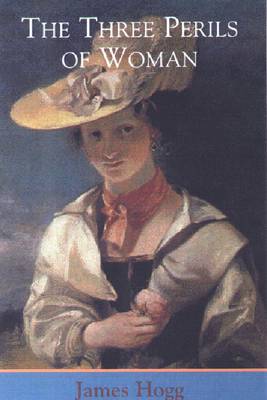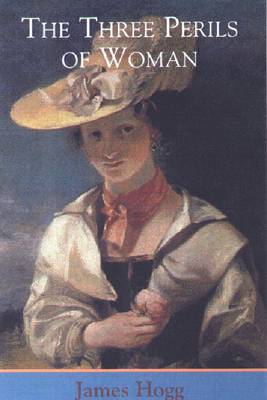
- Retrait gratuit dans votre magasin Club
- 7.000.000 titres dans notre catalogue
- Payer en toute sécurité
- Toujours un magasin près de chez vous
- Retrait gratuit dans votre magasin Club
- 7.000.000 titres dans notre catalogue
- Payer en toute sécurité
- Toujours un magasin près de chez vous
Description
First published in 1823, Hogg's powerful novel combines two stories that hauntingly echo each other, one set in Edinburgh and the Scottish Borders in the early 1820s, and the other set in the Highlands in 1746, the time of Culloden and its devastating aftermath. The Three Perils of Woman subversively challenges many of the attitudes and assumptions of the established elite of Hogg's day, for example by refusing to gloss over what it calls 'the disgrace of the British annals', the atrocities committed by the Duke of Cumberland's victorious army in the Highlands after Culloden. Likewise, in its story of the 1820s Hogg's novel questions prevailing social attitudes to prostitution and other matters. The Three Perils of Woman had an interested but shocked and hostile reception on its first publication, and this controversial text was omitted from all the nineteenth-century collected editions of Hogg's works. It remained out of print from the 1820s until its republication in 1995 in the new Stirling / South Carolina edition of Hogg published by Edinburgh University Press, on which the present edition is based. Since 1995 The Three Perils of Woman has come to be seen as a book of outstanding interest and importance.'Commentators once dismissed Perils of Woman as a bad book because it trampled on the flowerbeds of early-nineteenth-century decorum; they now acclaim it a masterpiece for the very same reason, reading subversive craft in the place of oafishness.' Ian Duncan, Studies in Hogg and his World'Both stories [of The Three Perils of Woman] are generically diverse, self-consciously impure. Hogg described them as 'domestic tales', apparently soliciting a female readership whose delicacy he then assaults with speculations about promiscuity and prostitution, and with prayers so chattily informal that reviewers found them blasphemous. Both stories modulate suddenly from comedy to tragedy, though one - but which?- struggles throug
Spécifications
Parties prenantes
- Auteur(s) :
- Editeur:
Contenu
- Nombre de pages :
- 512
- Langue:
- Anglais
- Collection :
Caractéristiques
- EAN:
- 9780748663170
- Date de parution :
- 30-05-02
- Format:
- Livre broché
- Format numérique:
- Trade paperback (VS)
- Dimensions :
- 137 mm x 213 mm
- Poids :
- 476 g







